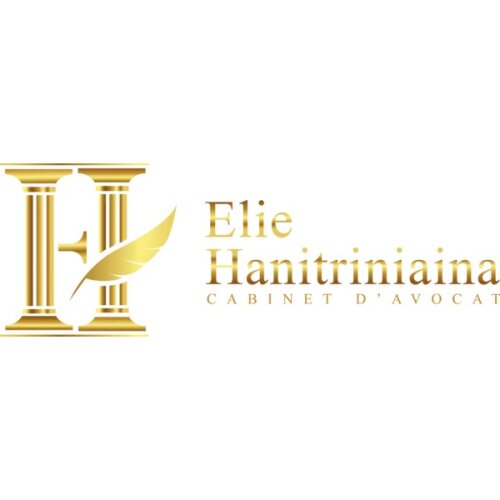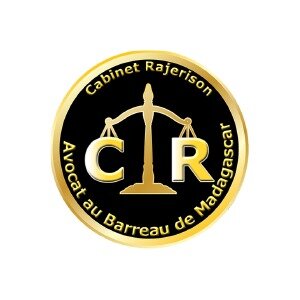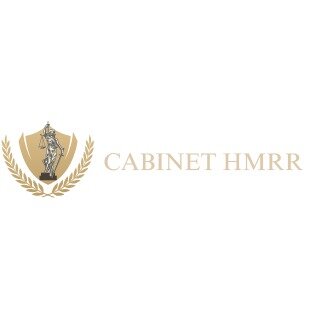Best Energy Regulatory Law Lawyers in Antananarivo
Share your needs with us, get contacted by law firms.
Free. Takes 2 min.
List of the best lawyers in Antananarivo, Madagascar
About Energy Regulatory Law in Antananarivo, Madagascar
Energy Regulatory Law in Antananarivo, Madagascar covers the rules and guidelines that govern how energy resources are produced, distributed, sold, and consumed in the capital city and its surrounding areas. This area of law seeks to balance the interests of the government, energy providers, investors, businesses, and consumers. The legislation deals with renewable and non-renewable energy sources, oversight of utility companies, environmental compliance, pricing, access to energy, and dispute resolution.
The Malagasy government, through dedicated regulatory bodies, aims to ensure the reliable and sustainable provision of energy while protecting consumers' rights and encouraging responsible investment in the sector. As Antananarivo continues to grow, the complexities of energy needs and regulatory oversight have expanded, making legal guidance increasingly important for both individuals and businesses operating in this area.
Why You May Need a Lawyer
There are various situations where legal help in Energy Regulatory Law is necessary in Antananarivo. Some of the most common reasons include:
- Facing disputes with an energy provider or utility concerning service, contract terms, billing, or access issues.
- Seeking to obtain permits or licenses for energy production, distribution, or sale whether for a business or a renewable energy project.
- Addressing compliance issues related to environmental regulations, safety standards, or national energy policies.
- Negotiating contracts between producers, distributors, suppliers, or consumers within the energy sector.
- Advising investors and companies on the legal frameworks for entering Madagascar’s energy market.
- Assisting communities or NGOs advocating for fair access to energy or contesting project impacts.
- Resolving disputes or appeals in regulatory proceedings at local or national levels.
Given the regulatory complexity and frequent changes in the law, professional legal advice helps individuals and organizations avoid risks, remain compliant, and secure their rights.
Local Laws Overview
The framework for Energy Regulatory Law in Antananarivo includes various legal instruments and authorities. Some of the major components are:
- The Electricity Code of Madagascar which regulates electricity production, transport, distribution, and sales in Madagascar, including licensing requirements and consumer protections.
- Decrees and ministerial orders that address implementation details, technical norms, and safety standards.
- The Autorité de Régulation de l’Electricité (ARELEC), the principal regulatory body, oversees licensing, tariffs, service quality, and dispute mediation in the electricity sector.
- Environmental regulations require impact assessments and compliance for new or expanded energy infrastructure, particularly regarding renewable energy projects and rural electrification.
- Tariff setting principles are regulated to ensure electricity rates are fair, non-discriminatory, and reflect economic realities, with a focus on protecting vulnerable consumers.
- Anti-monopoly and competition rules are in place to ensure no single entity dominates the energy sector and to foster an investment-friendly climate.
- Laws also set forth the rights and obligations for off-grid and mini-grid energy solutions, which are significant in rural parts of Antananarivo.
As Madagascar adapts its regulatory landscape to improve energy access, shift to renewables, and attract foreign investment, staying informed about legal updates is essential for anyone working within or affected by the energy sector.
Frequently Asked Questions
What government body is responsible for regulating energy in Antananarivo?
The primary body is the Autorité de Régulation de l’Electricité (ARELEC), which handles licensing, oversight, and consumer protection in the electricity sector.
How are energy tariffs determined?
Energy tariffs are set by the regulator based on a formula that considers production costs, infrastructure investment, and consumer protection. Public consultations may be part of the process.
Can private companies produce and sell electricity in Antananarivo?
Yes, private companies can operate in the sector provided they obtain the required licenses and comply with relevant technical and safety regulations.
What are the steps to obtain an energy license?
Applicants must submit a detailed dossier including technical plans, financial information, environmental impact assessments, and proof of compliance with safety standards to ARELEC.
Are renewable energy projects encouraged by law?
Yes, Malagasy law contains incentives and regulatory support for renewable energy projects, especially those aimed at rural electrification and reducing carbon emissions.
What rights do energy consumers have?
Consumers have the right to fair tariffs, reliable service, transparent billing, and access to complaints and resolution mechanisms.
How are disputes between consumers and providers resolved?
Disputes are typically mediated first by ARELEC. If unresolved, cases may be taken to the administrative courts or civil courts.
What environmental regulations apply to energy development?
All significant energy projects require an environmental impact assessment and must comply with national environmental laws and standards.
Are there special rules for off-grid or rural energy projects?
Yes, separate frameworks and sometimes streamlined procedures exist for off-grid and mini-grid energy providers, especially to encourage investment in underserved communities.
Do foreign investors face additional regulations?
Foreign investors must meet the same licensing and compliance requirements as local entities but may also be subject to specific investment codes and safeguarding measures.
Additional Resources
If you need further information or wish to seek guidance related to Energy Regulatory Law in Antananarivo, consider contacting the following resources:
- Autorité de Régulation de l’Electricité (ARELEC)
- Ministry of Energy and Hydrocarbons (Ministère de l’Energie et des Hydrocarbures)
- Ministry of Environment and Sustainable Development (Ministère de l’Environnement et du Développement Durable)
- Chamber of Commerce and Industry of Antananarivo
- Local bar associations and legal aid organizations
- Civil society groups working on energy access and environmental protection
These bodies can provide official documentation, application forms, regulatory updates, and recommendations for professional legal assistance.
Next Steps
If you require legal advice or assistance in the field of Energy Regulatory Law in Antananarivo, Madagascar, consider the following steps:
- Identify the specific issue or question you have related to energy regulation, such as licensing, dispute resolution, or regulatory compliance.
- Gather relevant documents and facts, including contracts, correspondence with authorities, or project details.
- Contact a licensed legal professional or law firm with expertise in energy laws and regulations. The local bar association can provide referrals if needed.
- Prepare your questions and goals, so you can make the most out of your consultation with legal counsel.
- Continue to monitor updates in energy regulations and industry practices, as ongoing reforms can influence your rights and obligations.
Seeking help from qualified legal professionals ensures you understand your options, avoid potential pitfalls, and protect your interests when dealing with energy regulatory matters in Antananarivo.
Lawzana helps you find the best lawyers and law firms in Antananarivo through a curated and pre-screened list of qualified legal professionals. Our platform offers rankings and detailed profiles of attorneys and law firms, allowing you to compare based on practice areas, including Energy Regulatory Law, experience, and client feedback.
Each profile includes a description of the firm's areas of practice, client reviews, team members and partners, year of establishment, spoken languages, office locations, contact information, social media presence, and any published articles or resources. Most firms on our platform speak English and are experienced in both local and international legal matters.
Get a quote from top-rated law firms in Antananarivo, Madagascar — quickly, securely, and without unnecessary hassle.
Disclaimer:
The information provided on this page is for general informational purposes only and does not constitute legal advice. While we strive to ensure the accuracy and relevance of the content, legal information may change over time, and interpretations of the law can vary. You should always consult with a qualified legal professional for advice specific to your situation.
We disclaim all liability for actions taken or not taken based on the content of this page. If you believe any information is incorrect or outdated, please contact us, and we will review and update it where appropriate.














